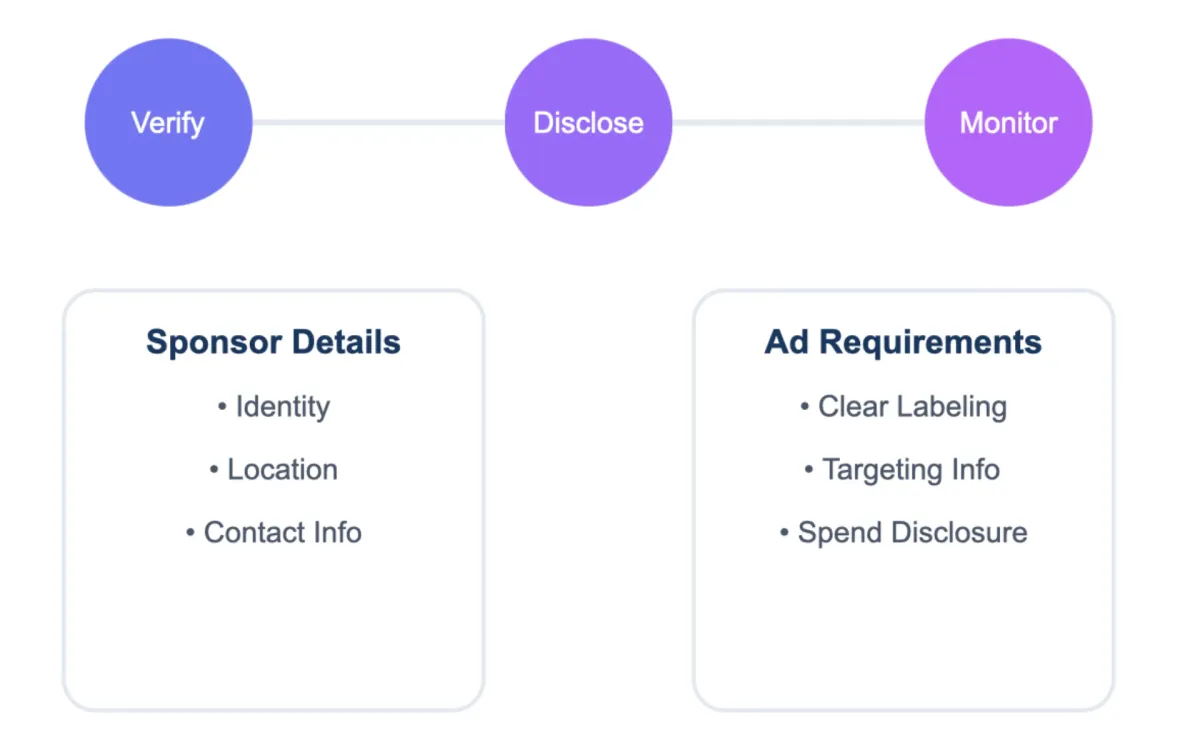
Google's decision to cease political advertising services in the European Union represents a significant response to the EU's new Regulation on Transparency and Targeting of Political Advertising (TTPA). This development merits careful analysis to understand both the company's rationale and its broader implications for digital political communication in Europe.
Google has identified several specific technical hurdles that make compliance with the TTPA particularly challenging. The primary difficulty lies in the regulation's broad definition of political advertising, which extends beyond explicit campaign messaging to encompass issue-based advertising. According to Google's announcement, this breadth makes it "difficult to reliably identify at scale" what constitutes political advertising under the new rules.
A critical technical obstacle involves the requirement to track and verify election-related data across 27 EU member states. Google cites the "lack of reliable local election data permitting consistent and accurate identification of all ads related to any local, regional or national election" as a major impediment. This challenge is magnified by the EU's complex political landscape, where multiple elections at various governmental levels occur throughout the year.
The operational burden of implementing the TTPA's requirements presents several challenges:
- Identity Verification: The regulation requires enhanced verification of advertiser identities and detailed documentation of funding sources, creating new operational workflows across multiple jurisdictions.
- Targeting Restrictions: The new rules impose strict limitations on how personal data can be used for ad targeting, requiring significant modifications to Google's existing advertising infrastructure.
- Transparency Requirements: The obligation to provide detailed transparency notices with each political advertisement would require substantial changes to Google's ad delivery systems.
Google has expressed particular concern about the timeline for implementation. The company notes that "key technical guidance may not be finalized until just months before the regulation comes into effect" in October 2025. This compressed timeline between final guidance and enforcement creates significant risk for technology platforms attempting to ensure compliance.
Google's decision aligns with its previous responses to strict political advertising regulations in other jurisdictions. The company has made similar decisions to exit political advertising markets in:
- France, due to complex political advertising laws
- Canada, following the implementation of the Elections Modernization Act
- Brazil, in response to strict electoral advertising requirements
This pattern suggests a consistent corporate strategy of withdrawing from markets where political advertising regulations create substantial compliance challenges or legal uncertainties.
The withdrawal of Google, a dominant player in digital advertising, creates significant implications for political communication in the EU:
- Campaign Strategy Shifts: Political campaigns will need to redirect their digital advertising budgets to alternative platforms and methods of voter outreach.
- Market Opportunity: The void may create opportunities for smaller, EU-based advertising platforms that can more easily adapt to local regulations.
- Traditional Media Revival: There may be increased reliance on traditional media channels for political advertising, potentially affecting campaign cost structures and reach strategies.
Despite withdrawing from political advertising, Google has committed to maintaining other election-related services and tools. The company states it will "continue to invest in the people, policies, technology, products and partnerships necessary to display authoritative information and tackle disinformation and harmful content."
The decision raises broader questions about the balance between regulation and market participation in the digital political sphere. While the TTPA aims to enhance transparency and protect democratic processes, the withdrawal of major platforms like Google might result in unintended consequences for political discourse and campaign accessibility.
This situation presents several important considerations for various stakeholders:
For Regulators
- The need to balance comprehensive oversight with practical implementability
- The importance of providing clear technical guidance well in advance of enforcement
- The potential need for graduated implementation approaches for complex requirements
For Political Campaigns
- The necessity of developing alternative digital outreach strategies
- Potential increases in campaign costs due to market concentration
- The need for adaptation to a more fragmented advertising landscape
For Voters
- Potential changes in how they receive political information and campaign messages
- Increased importance of media literacy in a shifting digital landscape
- Possible reduction in micro-targeted political messaging
This development marks a significant shift in the European digital political advertising landscape, with implications that will likely extend beyond the immediate impact on Google's services. As other platforms evaluate their positions and the regulation's implementation date approaches, the full scope of these changes will become clearer.

